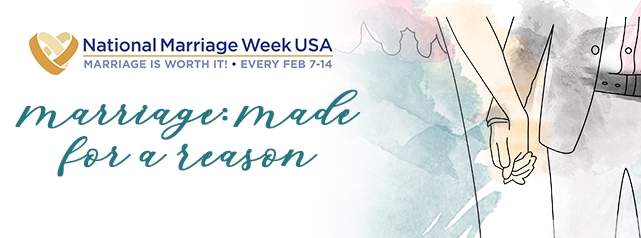Day Four – Marriage: Made for Life
Breaking Open the Theme
“Male and female he created them. God blessed and God said to them: ‘Be fertile and multiply’” (Gen. 1:27-28).
Marriage is the natural human context wherein a child is properly conceived and welcomed into life as the “supreme gift of marriage” (GS, 50). And in this stance of openness and welcoming, meant to mark every aspect of married love, a husband and a wife grow closer to each other. Making a gift of himself or herself to the other as spouses and being open to children is one and the same choice and act. As Pope John Paul II taught, “Thus the couple, while giving themselves to one another, give not just themselves but also the reality of children, who are a living reflection of their love, a permanent sign of conjugal unity and a living and inseparable synthesis of their being a father and a mother” (FC, 14).
In other words, in marriage, love and life are inseparable. This is what the Church means when she teaches that the unitive and procreative meanings of married love are inseparable. In embracing each other, husband and wife embrace their capacity to conceive a child and are called to do nothing deliberate to close part of themselves to the gift of the other.
This does not mean that a child will be conceived from every act of sexual intimacy. Marriage is not a mechanical factory for the mass production of children. The Church teaches couples in their openness to life to practice responsible parenthood by discerning whether or not they have serious reasons, in keeping with God’s plan for marriage, to postpone becoming a father and a mother here and now.
“The fundamental task of the family is to serve life, to actualize in history the original blessing of the Creator – that of transmitting by procreation the divine image from person to person. (…) However, the fruitfulness of conjugal love is not restricted solely to the procreation of children, even understood in its specifically human dimension: it is enlarged and enriched by all those fruits of moral, spiritual and supernatural life which the father and mother are called to hand on to their children, and through the children to the Church and to the world” (FC, 28).
Reflection
Any honest consideration of marriage must think about children, the hope of our future. For millennia, people of every generation and of every culture have understood that the marriage of a man and a woman is the central pro-child social institution and the rock of the natural family. Marriage brings together a man and a woman who unite as husband and wife to form a unique relationship open to welcoming and caring for new life. As the union of husband and wife, marriage is a union open from within to the blessing of fruitfulness. Children are born “from the very heart” of marriage, from the mutual self-giving between husband and wife (CCC, no. 2366). They are the “supreme gift” of marriage and its “ultimate crown” (GS, nos. 50, 48).
Just as plants need the proper elements not only to begin to grow but also to flourish, children need the proper elements as well. It takes a man and a woman, with God’s help, to bring a child into existence. It makes sense that if sexual difference is essential for the beginning of life, it is also vital for the caring of that life. Mothers and fathers matter for the duration of a child’s life.
Marriage is the institution meant to ensure that a child is welcomed as a gift to be nurtured and raised by the uniquely different love that only a mother and a father can give. Just as a seedling needs the presence of soil, sunlight, and water to grow and flourish, so too a child needs the natural foundation of life and love uniquely provided in the loving marriage of a man and a woman open to the gift of a child.
To Think About
(Choose one or more of the following questions to reflect on by yourself and/or with your spouse)
(1) How are openness to life and sexual difference related? Why is this important for understanding the meaning of marriage?
(2) How do you understand and embrace the Church’s teaching on the sanctity of human life, including the Church’s teaching on the use of contraception?
(3) In what way can you witness as a couple to the sanctity and dignity of human life and the importance of mothers and fathers in the lives of their children?
Prayer of Married Couples
Almighty and eternal God,
You blessed the union of husband and wife
so that we might reflect
the union of Christ with His Church:
look with kindness on us.
Renew our marriage covenant.
Increase your love in us,
and strengthen our bond of peace
so that, [with our children],
we may always rejoice in the gift of your blessing.
We ask this through Christ our Lord. Amen.





